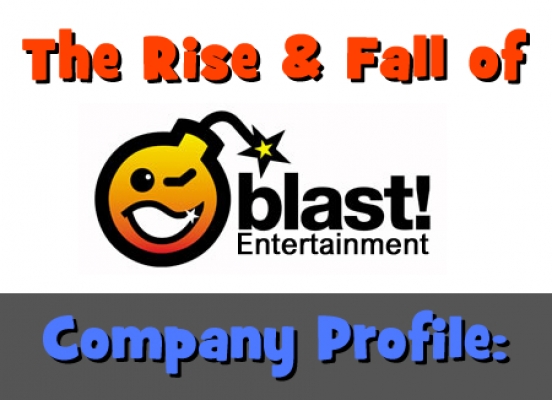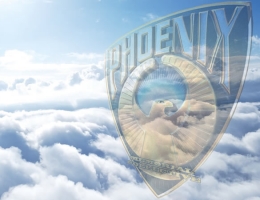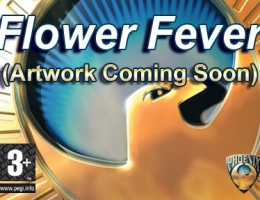
A detailed look at the rise & fall of a PS2 budget company
Blast Entertainment - Company Profile
- By SHLIM --
- Wednesday, 06 Nov, 2019
The freedom to develop on the Playstation 2 saw the rise of new companies all eager to dive into the action. A joint venture between 2 countries saw the creation of a childrens based & liscenced games publisher called Blast! Entertainment. We take a closer look at the rise and recent fall of a seemingly well driven company.
The Company Timeline
Blast! Entertainment was a PS2 development & publishing company based in London UK that specialised in releasing games licenced from well known TV & movie franchises. They started in October 2005 as a joint venture between London UK based company Mastertronic, and Holland based company Disky Communications Europe BV (who are a sub-division of the Herman’s Group). The company became directorship of Graham Orodje (former director of Vigho Enterpises) and Garry Williams (director of Mastertronic) and first started out using the name Peacefield Limited. They quickly changed the name to Hi-score Entertainment ltd, though this also didnt last long, and within just 3 months they had changed it again to Blast! Entertainment.
They started trading to the public in 2006 with 4 liscensed titles for the PS2, and followed the year later with an extra 19 liscenced games. After just 1 year from lauch they were trading in 7 major retail outlets including GAME and Sainsburys aswel as online with Amazon and Play.com.
Even though games were liscenced from popular franchises it was noticeable that there were limitations. Most games followed very loosely to its on-screen counterparts and It was common for names to be changed and storylines invented just for the soul purpose of the game. The games themselves were mid-range development, aimed at young and developing children. With its appealing titles, but simplistic gameplay, Blast! sat borderline between the 'high end budget' and 'low end AAA' companies.
During 2007, Andy Payne (another mastertronic director) had joined the board of directors at Blast! Entertainment, and by july that same year, Graham Orodje had stepped down as both secretary and director to concentrate on other projects. He was replaced as secretary by Steve Allwork, who had also recently become a director at Mastertronic. The company was maintained by Payne and Williams until November 2007 when they were joined by 2 more directors. Feike Dijkstra (director at Disky) and Nikolaas Bakker (prev companies unknown).
Things were looking promising, Blast! had built up friendships with many major companies including Paramount, Tiger & National Geographic, and seemed to be successful in rebooting classic TV & Movie titles of the 90s & beyond. Securing liscences to release games like Thomas the Tank, Action Man A.T.O.M.S. & The Flintstones it seemed as if Blast! were a company destined for success.
Closing the end of the year they had also moved into the handheld market, and a fresh start to 2008 saw them concentrate on releasing titles (mostly ps2 ports) onto the Sony PSP and Nintendo DS. Due to them being latecomers to the PS2 scene they took a step back and released just 6 more games for the system.
By 2009, Blast! had a range of titles over 5 gaming platforms, and seemed to be doing well. Sadly, behind the scenes the company had seen cash loans of over £2million from Mastertronic and Disky to help progress and keep the company afloat. Sales were not meeting expectations and it was a growing concern for parent company Hermans Group BV (who owned not only 100% shares in Disky, but 65% shares in Mastertronic). Blast! would no longer be seeking new liscences, but instead concentrated on selling remaining stock.
Dijkstra didnt last too long at the company, and a little under 2 years after he joined the team, near the end of 2009 he left both Blast! and Disky. Steve Allwork was next to leave, and followed through in september 2010. It was also around this time that they had decided to move into the mobile market, and started to port some of the more popular releases to Iphone and compatible devices.
Blast was now left to Bakker, Williams and Payne who continued to run the company together until 2014 when Garry Williams stepped down as director. 2013 saw the first year the company had made a noteable profit. It is speculated that stock was now being sold off at discounted prices, and the decision to cease trading were underway.
By 2014 the company had seen a lot of financial losses, and was in the process of winding up. Bakker and Payne stayed on at the company until april 2015 (when Nicolaas Bakker left), and it was left to Andrew Payne to sign the company off the register that same month.
Writers Opinion
Its clear that Blast Entertainment did not collapse due to bad management. Those in charge were experienced professionals who were more than capable of running the company. The faults i beleive were due to liscencing costs and the desire to only appeal to a younger audience. Some games were too simplistic and left no desire to replay, where others were lengthy but lacked the artistry skills to make it shine. Due to this games mostly recieved mid-low review scores and even though they boasted of some great liscences, Blast aquired a 'Budget Game Publisher' title.
Some liscences they aquired could of really lifted the company into the mainstream if only they would of spent more time developing them. Top-Gun would of been a great title for the more mature audience, but sadly aimed at children, it became a simplistic flight sim that lacked enjoyment. Little Britain is another title that could of raised the companys profile. Yet on release it was discovered to be nothing more than a short series of mini games with little replay value. Mistakes like these were what made people look away from future releases, while also making it harder to promote the titles that were worthy of their liscences.
Blast! did release a few good enjoyable games that are worth checking out, Garfield & Mr. Bean are two to name. Id be confident to say Blast! developed the best childrens titles on the PS2 system. But with many other companies doing a worse job, and with some lazily directly porting unplayable PS1 games to the system, it seemed to steer people away from the childrens market in general. With Blast opting to stock supermarkets & small outlets, the capability to outshine its competition by reaching a wider audience just wasnt possible. Overall the company did have some success, and even thoughit came to an end, it should not be looked at as a failure.
The Library
The company released XX games over its lifespan. Each game ranged between £9.99/14.95 (in the UK). Below is a detailed timeline of games and systems released on. You can check out each game in more detail in our database by clicking the games name (if applicable). KEY:
Name: Release: (MM/DD/YY)
AMF Xtreme Bowling PlayStation 2 (09/22/06 Europe)
Babe PlayStation 2 (09/22/06 Europe)
Casper and The Ghostly Trio PlayStation 2 (09/22/06 Europe)
Jumanji PlayStation 2 (09/22/06 Europe)
Dr. Dolittle PlayStation 2 (12/08/06 Europe)
Home Alone PlayStation 2 (12/08/06 Europe)
Captain Scarlet PlayStation 2 (12/08/06 Europe)
Xena Warrior Princess PlayStation 2 (12/08/06 Europe)
Beverly Hills Cop PlayStation 2 (12/08/06 Europe)
2007
Little Britain: The Video Game PlayStation 2 (03/16/07 Europe) | PSP (09/21/07 Europe)
Little Britain: The Computer Game PC (03/16/07 Europe)
Charlotte's Web PlayStation 2 (03/30/07 Europe)
Action Man A.T.O.M.: Alpha Teens on Machines PlayStation 2 (05/05/07 Europe)
Wacky Races: Mad Motors PlayStation 2 (06/12/07 Europe)
Thunderbirds PlayStation 2 (06/29/07 Europe)
An American Tail PlayStation 2 (07/03/07 Europe)
Bob the Builder Eye Toy (Bundle) PlayStation 2 (07/15/07 Europe)
Thomas & Friends: A Day at the Races (Eye Toy) PlayStation 2 (09/01/07 Europe)
The Flintstones: Bedrock Racing PlayStation 2 (12/08/07 Europe)
Top Gun PlayStation 2 (08/07/07 Europe)
Safari Adventures Africa PlayStation 2 (12/25/07 Europe) | PC (10/26/07 Europe)
Lassie PlayStation 2 (09/14/07 Europe)
Paddington Bear PlayStation 2 (11/16/07 Europe)
Mr. Bean PlayStation 2 (11/05/07 & 12/05/08 Europe) | DS (03/07/08 Europe) | PC (12/12/08 Europe) | WII (11/05/08 Europe)
Jetix Puzzle Buzzle PlayStation 2 (09/14/07 Europe) | DS (03/28/08 Europe)
Garfield: Lasagne World Tour PlayStation 2 (06/30/07 Europe)
Bob the Builder: Festival of Fun PlayStation 2 (11/01/07 Europe) | DS (08/07/08 Europe) | Wii (01/10/09 Europe)
2008
The Waterhorse: Legend of the Deep PC (07/03/08 Europe) | PlayStation 2 (02/08/08 & 02/20/08 Europe) | DS (03/01/08 Europe)
Johnny Bravo: Date-O-Rama! PlayStation 2 (06/27/08 Europe) | DS (10/10/08 Europe)
Postman Pat PlayStation 2 (02/29/08 Europe) | DS (03/28/08 Europe)
Casper's Scare School PlayStation 2 (02/10/08 Europe) | DS (10/31/08 Europe)
Casper's Scare School: Classroom Capers DS (11/14/08 Europe)
2009
Mr Bean's Wacky World of Wii Wii (02/06/09 North America) | Wii (02/06/09 Europe)
Casper's Scare School: Spooky Sports Day Wii (07/31/09 North America) | Wii (03/30/09 Europe) | DS (02/10/09 Europe)
Employees
Directors:
Graham Orodje, Garry Williams, Andy Payne, Steve Allwork, Feike Dijkstra, Nikolaas Bakker
Sales Information – United Kingdom
Peter Ball at Mastertronic
Harley Homewood at Mastertronic
Sales Information – International
Mark Watkins
PR and Communications
Kirsty Payne
Confirmed Stockists
Amazon, ASDA, Blockbuster, ChoicesUK, GAME, Gamestation, Play.com, Sainsbury's, Tesco, Woolworths, Mastertronic (Website)
Company Locations
2006-2008
Blast Entertainment Ltd.
122 Southwark Street
London SE1 0SW
United Kingdom
2008-end
Blast Entertainment Ltd.
1st Floor, 1 Benjamin Street
London
EC1M 5QG
United Kingdom
The Blast Entertainment website was created and maintained by Fink Creative, a company also directorship of Andy Payne. He resigned from his position in 2014, but his father Geoffrey stayed on as secretary until May 2017. The company still continues to run and works with many major games developers and companies worldwide.
Even though Blast! Entertainment came to a demise, each indevidual director has had incredible success with other ventures. From The Self Preservation Society to The London Video Games Festival, its clear that many of the ex Mastertronic team are established and very well focused professionals.
Mastertronic are a company that were established in the industry and have a very interesting history. I will plan on doing a descriptive documentation of them aswel, so please send us a Tweet @RetroDetect if youd like to read more about the demise of an established gaming giant.








